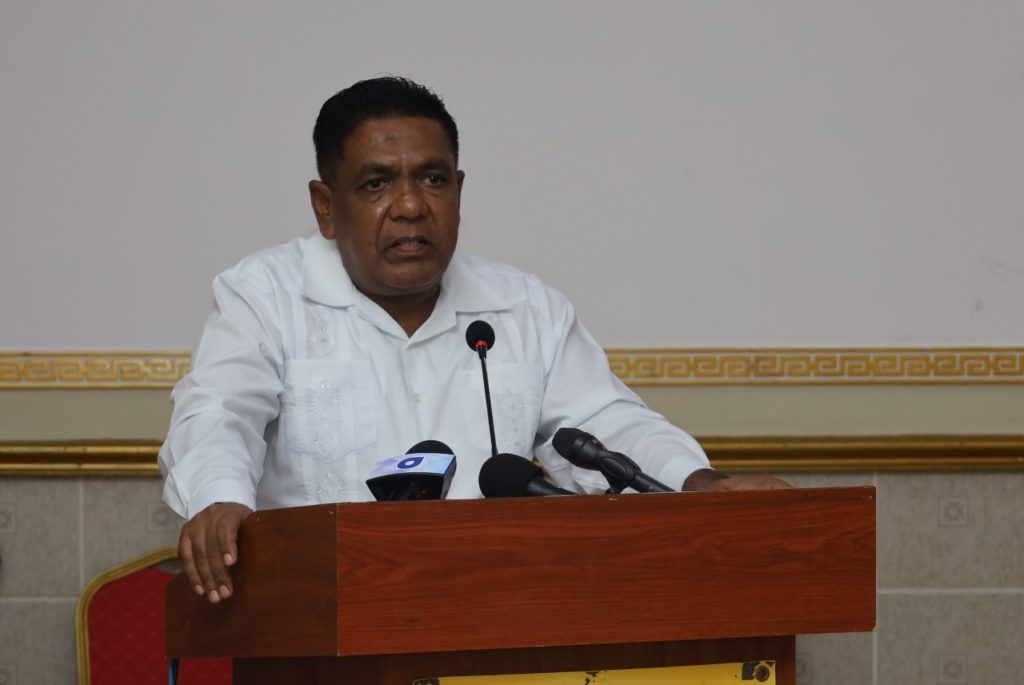
Following the successful passage of the Industrial Hemp Bill in the National Assembly last Monday, Agriculture Minister Zulfikar Mustapha said that the cultivation of industrial hemp will make way for newer and more lucrative industries while boosting the economy.
With Regions Six and Ten earmarked for the initial cultivation, Minister Mustapha explained that in addition to the soil type being suitable for hemp cultivation, the economic activities in those two regions were severely affected following the closure of two sugar estates in Region Six as well as the closure of the Toucan Connections Incorporated Call Center in Linden.
“Consideration was given to those two regions because of a number of factors. Two of the most important factors were because of the soil type and, more importantly, the economic situation in those regions. Many persons in those regions were placed on the breadline when the previous government closed the call center in Linden and the two sugar estates in Region Six. The call center fiasco was seen as an insurmountable challenge for the Granger government. As such, nothing much was done to resolve the issue. As it relates to GuySuCo, we know that there were political motives behind the closure of the estates. We are now working to correct these wrongdoings,” Minister Mustapha explained.
He said that contrary to some of the misinformation that only selected persons will be allowed to cultivate hemp, Minister Mustapha explained that anyone who meets the criteria can get involved in the cultivation of industrial hemp.

“The bill clearly states that anyone can apply for a hemp license for planting or manufacturing. There are certain criteria that they have to satisfy, one of those being that the application would have to be submitted with a criminal background check, have an active lease, and be involved in a share-cropper agreement, among other things. So, anyone can get involved, especially those small-holding farmers because it is a very lucrative crop. Young people can also get involved because this will create new opportunities for anyone who gets involved in hemp cultivation,” he stressed.
In terms of ensuring best practices are followed, Minister Mustapha explained that the Bill stipulates that a regulator body will be instituted to oversee the budding industry.
“So, we’ll have a regulatory body that will have oversight of this entire industry. That body will comprise representatives from the Ministries of Agriculture, Health, and Home Affairs; the Guyana Forensic Laboratory, and other related institutions. With that, the regulatory body will employ specialists who are capable of providing the necessary guidance to potential hemp farmers in that regard. The reason for this is because this is a new industry that will have to be nurtured well. Hemp cultivation will also require some amount of control,” Mustapha added.
Minister Mustapha also said that there was room for young people to get involved in the cultivation of hemp under the President’s ‘One Guyana’ Initiative. He explained that similar to the Agriculture and Innovation Entrepreneurship Programme that was launched in January 2022 which saw young people being given the opportunity to cultivate high-value crops using smart agriculture practices, hemp cultivation is also being considered.
“Apart from the shadehouse project, the ‘One Guyana’ Project will also see young people being involved in the Black Belly Sheep Project. We are also looking to introduce young people to the aquaculture project with the brackish water shrimp and prawns project, and the dairy development project. We are on a mission to ensure that a lot of young people are given opportunities in agriculture. The President is very passionate about agriculture and very adamant about having more young people involved in the sector,”
With the establishment of this new industry, Guyana would be poised to tap into the global industrial hemp market which was valued at $4.9 billion in 2019 and is projected to reach $10.6 billion by 2025 and $18.6 billion by 2027.
Apart from bringing in valuable foreign exchange to the economy, the cultivation of industrial hemp will also create significant employment opportunities by catering to an increasingly growing and highly desired market demand while at the same time providing for a relatively higher profit margin compared to other traditional commodities. [Ministry of Agriculture press release]







